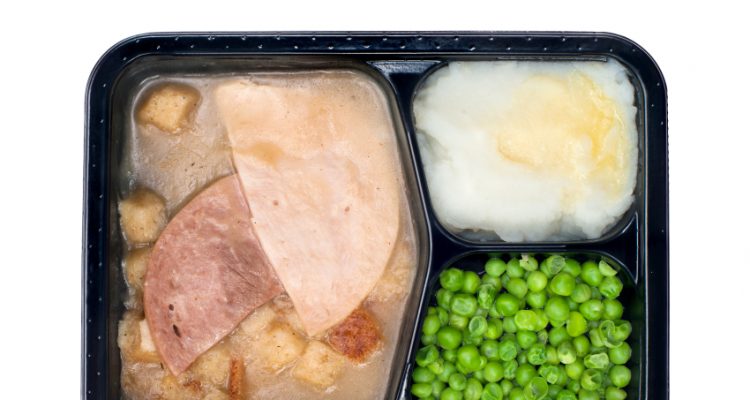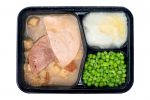
According to a new study published in the journal Obesity, eating prepackaged foods that are portion-controlled might lead to greater weight loss than a standard self-select diet.
For the study, headed by researchers at the Family Medicine and Public Health at the San Diego School of Medicine (University of California), 183 participants were assigned to one of three groups:
- Group 1 received two prepackaged meals/day.
- Group 2 received two prepackaged meals/day, but the meals were higher in protein.
- Group 3 (control group) chose their own meals (self-select diet).
For the prepackaged lunch or dinner frozen entrées, participants had a choice of 50 varieties to choose from (or a choice of 25 entrée varieties for the higher-protein group).
Meal plans also included additional food from all food groups (veggies, fruits, grains, dairy, oil, and protein) for appropriate macronutrient distribution:
- 10-35% energy derived from protein
- 45-65% energy derived from carbohydrates
- 20-35% energy derived from fat
The average prepacked entrées provided 16.3 g protein (23.2% of energy), 40 grams of carbohydrates (56.9% of energy), and 6.2 grams of fat (19.8% of energy).
The higher-protein meals included 18.4 grams of protein (29.4% of energy); 32 grams of carbohydrates (51% of energy) and 5.6 grams of fat (20% energy).
Each participant had personalized counseling sessions with dietitians where they received exercise recommendations and discussed weight-loss goals and strategies.
Cheryl Rock, the study’s lead researcher and professor of Family Medicine and Public Health at the San Diego School of Medicine, stated that subjects who were given prepackaged meals twice-daily lost approximately eight percent of their weight, while control group participants who chose their own diets only lost six percent (74% of individuals in the prepackaged foods groups achieved a five percent weight loss goal after three months, compared to 53% of the control group).
Greater weight loss among the prepacked group also contributed to lower cardiovascular disease risk factors (i.e. lower cholesterol).
Food satisfaction was also similar among the groups—an important factor when it comes to weight loss and keeping the weight off. Although fat loss came about in conjunction with behavioral counseling, researchers believe that removing the complications of meal planning by consuming prepared low-fat meals was beneficial to participants as part of their weight-loss intervention.
Source:
Rock, C. L., et al., “Randomized clinical trial of portion-controlled prepackaged foods to promote weight loss,” Obesity, May 25, 2016; doi: 10.1002/oby.21481.













